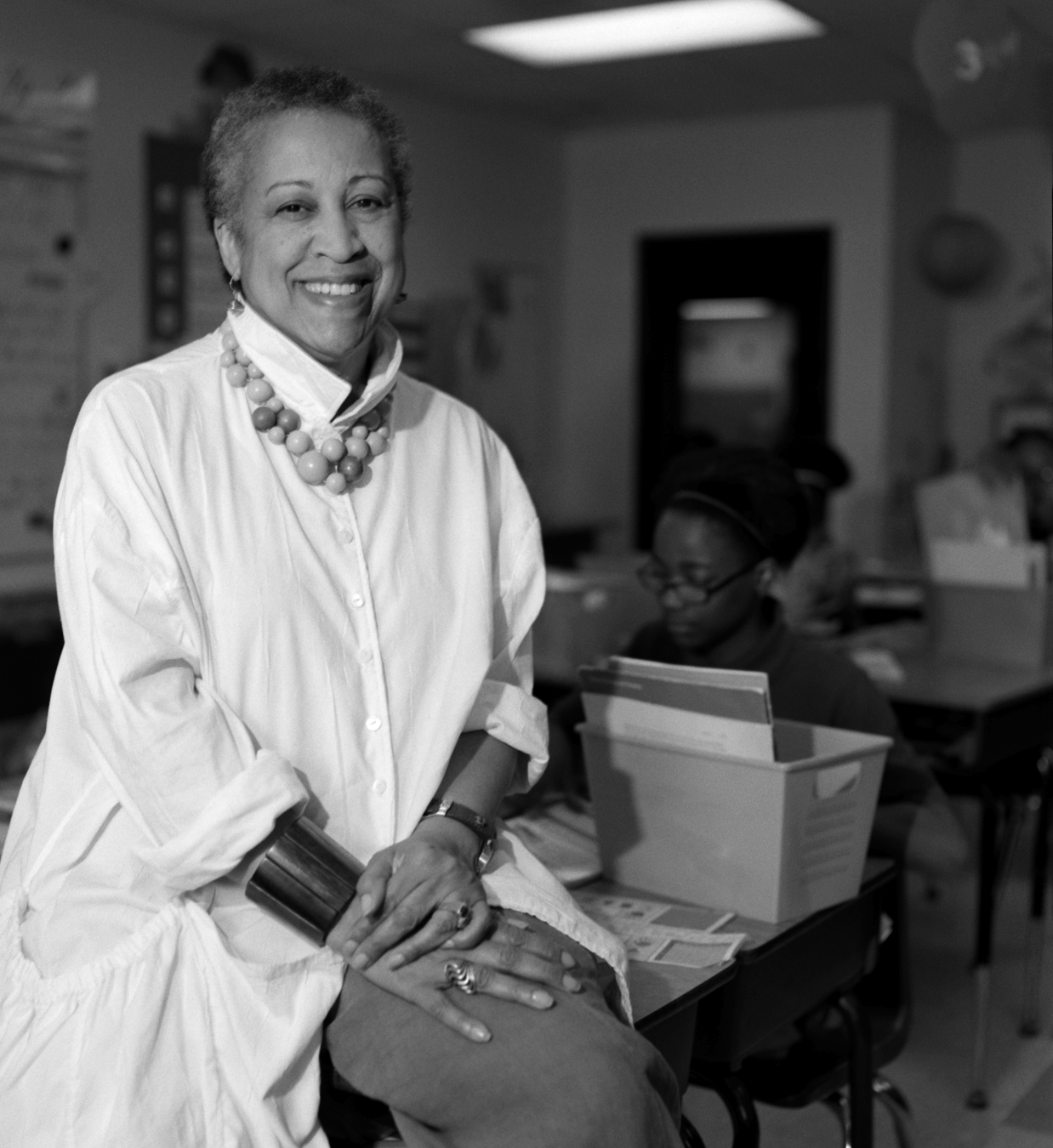Longtime educator believes schools can do better by doing differently
I ran into Carmen N’Namdi at the opening of the “Detroit Resurgent” photo exhibit opening at the Michigan State University Museum recently. Although we were at an art opening, N’Namdi’s mind was on education.
That makes sense. She founded the private Nataki Talibah Schoolhouse of Detroit in 1978, oversaw it becoming a charter school in 1995 (among Michigan’s first), and served as head of the school until retiring in 2008. She now serves as executive director of Nataki Educational Services, and on the boards of the National Charter Schools Institute, Michigan Future, Inc., and the Michigan Association for Public School Academies.
As an activist in education, N’Namdi knows something about what’s going on when it comes to teaching children. And she is concerned about how schools are preparing students in the 21st century and the global marketplace.
“We need to teach values and principles that transcend time,” N’Namdi said in a subsequent interview. “That is what I’d like to think we’ve been working on at the school the past 35 years. One of those things is introspection. As a country we don’t value introspection. We think of that as a weakness. We need to know ourselves. …We should be raising people to understand the importance of and development of humanness. I’m afraid our need to get things under control will not allow for that. Most of our entrepreneurs were not traditional students.”
Most people think of education as learning a set of skills for a specific job. Introspection runs a little counter to just getting the job done. But N’Namdi takes it even further. She believes students should play more, too. She says this at a time when anything that isn’t focused learning for a specific skill is becoming unpopular. There are some who even suggest there should be no more summer vacations so students can keep their noses to the grindstone.
“I think that we’re going to have to make sure that we are learning in a much broader context,” she said. “Students need activities, recess and games. There is almost no recess now. When I was in school I experienced goal-setting on the playground. In four-square I wanted to spike that ball. I worked hard until I got that spin on my ball and the spike. When students play something and go to something new, they’re watching and learning. During recess you learn logic, how to keep trying and how systems work. Everyone who does well academically is not necessarily good at the other things.”
Right now our state legislators are fighting over adopting the national Common Core education standards for math and English in K-12 schools. Somehow it has become a political argument in Michigan although a recent statewide survey shows 71 percent of citizens support the little-understood standards.
N’Namdi is neutral about the standards themselves but wonders about what drives the thinking about education these days and what influences the drive to standardized testing. Teachers and public schools have been pushed up against the wall in recent years as businesses seek more competitiveness in the international marketplace.
“This Common Core thing is very interesting,” said N’Namdi. “If that’s what you want, then train teachers that way at the university. It isn’t that it’s good, bad or anything. …I do know that with that comes business. We have to buy the materials to prepare for the Common Core. The testing materials are printed and published. Once you take the test you have to work for the kid that didn’t do well. All of these things become big money makers.”
Some of this is about money. Who’s going to make it in the education system and who’s going to make it after finishing school and going to work. Parents are concerned that their children are competitive in the marketplace of the future. We don’t really know what that future will look like.
But we do know that the Great Recession we’re fighting to recover from was caused by greedy Wall Street bankers who were willing to make money at the expense of almost anybody without thinking much about it.
That’s not about education; that’s about ethics. Maybe those folks could use a little more introspection – and a little more time on the playground.
See what new members are saying about why they donated to Bridge Michigan:
- “In order for this information to be accurate and unbiased it must be underwritten by its readers, not by special interests.” - Larry S.
- “Not many other media sources report on the topics Bridge does.” - Susan B.
- “Your journalism is outstanding and rare these days.” - Mark S.
If you want to ensure the future of nonpartisan, nonprofit Michigan journalism, please become a member today. You, too, will be asked why you donated and maybe we'll feature your quote next time!


 A TEACHER LEARNS: Carmen N'Namdi has learned a few things in her years as an educator, chief among them that education should not be strictly job training. (Courtesy photo)
A TEACHER LEARNS: Carmen N'Namdi has learned a few things in her years as an educator, chief among them that education should not be strictly job training. (Courtesy photo)